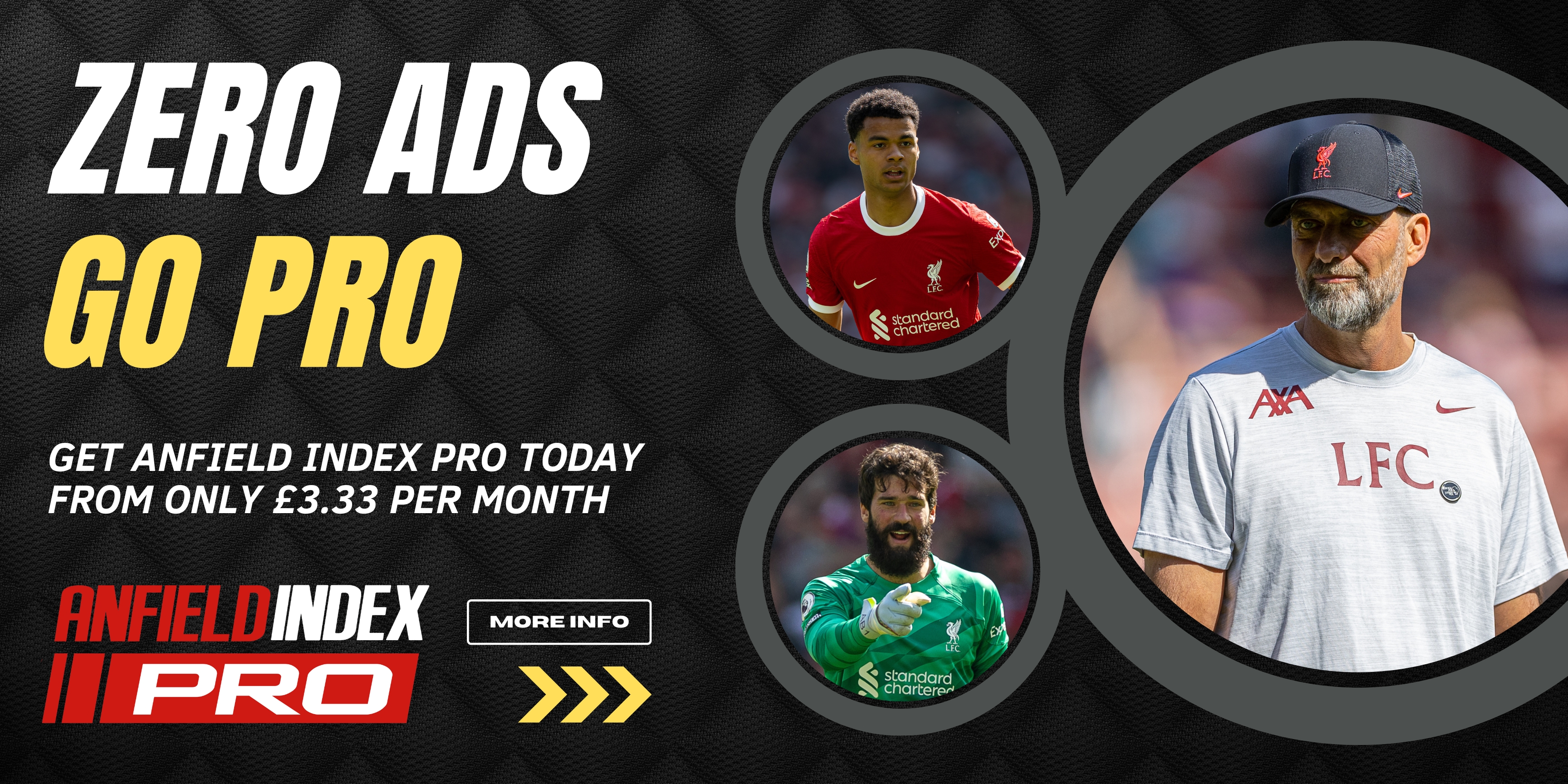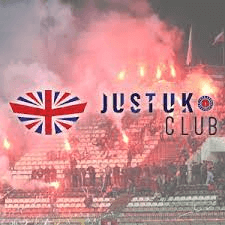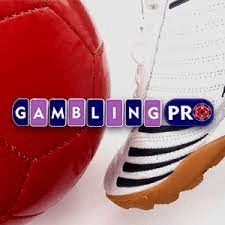Ask ten football fans: which is the world’s greatest football rivalry?
You will get ten different answers – if not more.
A Glaswegian may tell you that nothing is as fierce as the Old Firm Derby, Celtic vs Rangers, with its backdrop of simmering political and religious tensions.
Ask a Milanese: he will tell you that the enmity between the reds and blues of AC Milan and Internazionale cannot be topped.
Ask a Spaniard, and he may point to the two Spanish giants: Barcelona and Real Madrid. ‘El Clasico’ is watched by worldwide television audiences of over 500 million people as the two most expensively-assembled teams in history take to the pitch.
In recent years, a Spaniard may have insisted on his viewpoint: how can you outdo a rivalry, which has contained within it, the ongoing GOAT battle between Argentine wizard, Lionel Messi, and Portuguese goal-machine, Cristiano Ronaldo?
Fair enough, Pedro.
But go to the North-West of England, and you will likely get a completely different answer altogether – and this one, if you look carefully, may top the lot, and by quite a distance. Ever since the middle of the 20th century, Liverpool and Manchester have been hubs and terminal rivals in the world of fashion, pop culture, music and football. They have been yings to the other’s yang; they have been ferocious rivals in the world of sport and beyond.
So bitter is the bile, so intense is the rivalry and so poisonous is the vitriol that has since developed between Liverpool FC and Manchester United, that no player has been transferred between the two clubs for over half a century.
Even Real Madrid and Barcelona, supposedly unparalleled rivals, have negotiated when the need arises and done business in the transfer market when the dollar signs have flashed: Michael Laudrup, Luis Figo, and Saviola to name only three.
In order to find a player transfer between the Kopites and the Red Devils, we have to go back to a time when Elvis was King and the word ‘sick’ meant that somebody was ill.
In 1964, Phil Chisnall made the move from Anfield to Old Trafford for £25,000: a tidy sum of money back then. He played for United for three years. Since the forward put pen to paper all those years ago, as the two clubs have vied for supremacy in what has become the most watched league in the world, no other player has made that move or vice versa. What this indicates, unlike other rivalries, is that the enmity is felt amongst the board members and shareholders, as well as the fans at the club: they all feel it from top to bottom. The rivalry is part of the fabric of Liverpool and Manchester United.
It is the air that both clubs breathe.
To give an example of what happens when you attempt to go against this trend: in 2007, Manchester United left-back Gabriel Heinze was approached by Liverpool representatives to join what was known as ‘The Rafa-lution.’
This was Anfield coach Rafael Benitez’s attempt to catch United in the Premier League, at a time when Liverpool were finishing miles off the top on a regular basis. The Argentine defender, not feeling valued at Old Trafford, tried to force a move to Merseyside.
Alex Ferguson was furious. He hit the roof.
The United boss, who had years earlier promised to ‘knock Liverpool off their f***ing perch,’ was not going to let the move happen.
He was not going to strengthen his deadliest rivals.
This would be sporting sacrilege.
The ruthless Scot instructed Old Trafford’s bigwig lawyers to make the process as ugly as possible and to do everything within their power to block the move with all possible haste. The Premier League, the two clubs, their agents and a number of solicitors became embroiled in this legal melee.
Ferguson even made public statements against the move, reassuring United fans that Heinze would not be going to join Benitez: “The Premier League can do what they want. I can assure you, Liverpool will not be getting Gabriel Heinze. We can put that bed right now.”
Despite Heinze’s best attempts to join Liverpool, including exploring the possibility of buying out his own United contract, his legal representatives, wilting under the wrath of Ferguson and the might of the Old Trafford legal budget, had to admit defeat late that summer.
Unsurprisingly, no other player has tried to join the Capulets from the Montagues since.
The bottom line is that both of these great clubs have always feared to supply the other with a player who ‘clicks’ and becomes the mainstay of a great team. They don’t want to sell the Philosopher’s Stone to the other wizard. Historic errors are rarely forgotten and football fans are known to have memories longer than Ellie the Elephant.
Just ask former Leeds manager, Howard Wilkinson: he sold Eric Cantona to the Old Trafford outfit in November 1992 for £1m, thereby kickstarting the most successful period in the history of Manchester United. Many Leeds fans still haven’t forgiven Wilkinson, a quarter-century later. It’s like paying the bill for the wedding of your ex to the guy that nicked her from you.
Painful. Very painful.
A decade before Chisnall joined United from Liverpool, a Red Revolution was taking place down the East Lancs Road. From the depths of the Second Division in the 1950s, legendary Scot Bill Shankly took Liverpool to the summit of English football in the 1960s and began to make headway in Europe in the 1970s. His achievements are honoured to this day at Anfield by a statue and the immortal words which are considered his footballing epitaph: “He made the people happy.”
Shankly’s protégé, Bob Paisley, the next Anfield manager, took the Reds to the very summit of Europe, winning the European Cup in 1977, 1978, 1981 and 1984.
Liverpool, simply put, were the best football team on the planet: bar none.
“Liverpool” became a buzzword for success whilst Manchester United, sometimes finding themselves even in the bottom half of the First Division table, looked on bitterly. One cannot even say: “Always the bridesmaid, never the bride.”
They weren’t even invited to the bloody reception.
A celebrated banner at Anfield would greet Manchester United whenever the Red Devils set foot on the haloed Anfield turf: WE ACHIEVE YOUR DREAMS.
Ruthless – but true – at the time.
Alex Ferguson took over at Old Trafford in the mid-1980s. He struggled initially – but just when he was on the verge of the sack, just when most United fans had had enough of his attempts to overhaul the Merseysiders, he won the FA Cup in 1992 with a solitary strike from Mark Robins. This proved to be a springboard to two decades of success in which United equalled Liverpool’s proud record of eighteen league titles before overhauling it in 2011, much to the dismay of The Kop.
Even to this day, despite the club not winning the league title since 1990, Liverpool still have two more Champions Leagues than United, five to United’s three, thanks to the ‘Miracle of Istanbul’ in 2007 when a Steven Gerrard-inspired Liverpool came back from three goals down against AC Milan to claim Europe’s greatest prize.
Although Ferguson penned a letter to Benitez congratulating him on this victory, one suspects that the letter was written through gritted teeth, and perhaps with blood extracted from his own wrists.
But over the last decade, the two North-West rivals have had to watch other teams, up-and-coming clubs like Manchester City and Chelsea, become the dominant forces in English football. At times, Liverpool and Manchester United have resembled two grey-haired historians, feathery quills at the ready, looking back on the glory days of the past whilst the new generation, cool and swanky, rewrite the present whilst looking to the future.
So few games, even in the deepest, darkest history of this enmity, have been as critical as Sunday’s clash at Old Trafford. Within this age-old rivalry, the two managers meet for the ninth time. Klopp has only lost once, recording three victories against the former Chelsea boss.
At this juncture, Jurgen Klopp finds his team to be everything he wishes it to be: defensively stronger with Virgil van Dijk and Alisson Becker and increasingly fluid up-front with Mohamed Salah returning to his deadly best. Jose Mourinho, after this week’s limp defeat at Valencia, is questioning his players’ attitude publicly.
The two men could not be more different if they tried.
On and off the pitch, the German and the Portuguese are polar opposites: Klopp’s charm off the pitch is mirrored only by the style of his team’s play on it. The all-action Gegenpressing system, which may have been toned down somewhat this season, is still, nevertheless, his trademark. This spectacular style brought German giants Bayern Munich to their knees when Klopp was at Dortmund. This ‘heavy metal’ football would make Megadeth or Iron Maiden proud: pressing from the front, playing quick passes and finding, as often as possible, the most direct route to goal. Additionally, Klopp’s personality, encapsulated by his killer one-liners and trademark hugs, have quickly endeared him to the British media, to his players and to Liverpool fans all over the world.
In contrast, Mourinho’s style of play is now considered somewhat outdated by most modern commentators. Whilst Klopp is considered an attacking manager, Mourinho has become synonymous with the notion of ‘parking the bus,’ a football phrase from the days of famous Italian ‘catenaccio’ system which implied unadulterated negativity in one’s tactics. Ironically, it was Mourinho himself who introduced this phrase to the English when referring to other teams who were overly defensive against his Chelsea team of the mid-noughties. Now, it is used as a stick to clobber him on the head, each and every week.
To add a little more spice, Mourinho, with his characteristic venom, implied earlier in the year that Klopp’s jovial persona is fake: “I tell you what I think, I tell you what I feel. Jurgen tells you what you want whilst I answer the question you ask.”
If a managerial rivalry within a club rivalry wasn’t enough, there is another one: Mourinho’s historic tensions with the Liverpool fans. From the finger-shushing antics of 2005 in the Carling Cup Final to the Luis Garcia ‘ghost goal’ in the Champions League semi-final a few weeks later, Mourinho has rarely been gracious either in victory or defeat. He famously tried to sign Kop talisman Steven Gerrard from Anfield in 2006 and then ran down the Anfield touchline in 2014 when his Chelsea team denied Liverpool the title after a slip from the afore-mentioned Liverpool skipper. Although he would argue that he was merely celebrating a goal, like any other goal on any other day, he knew perfectly well what he was doing: he was putting the knife in, twisting it anti-clockwise and then tossing some red salt into an open wound.
More recently, the Portuguese schemer has bizarrely complained Klopp has been given more spending power to purchase top talent. This is delusional: Klopp has spent a net of £121m compared to Mourinho’s £307m since the summer of 2016.
Given this, the 14-year rivalry between Mourinho and the fans of the Anfield club is still there, bubbling under the surface, ready to erupt like a volcano.
Sunday’s game will be watched by over half a billion people worldwide – at least.
We will be watching a rivalry within a rivalry within a rivalry.
If Liverpool were to defeat United on Sunday, especially convincingly, it could be the final nail in the coffin of the former Porto boss. Indeed, he may never be seen in English football again.
Think about it: realistically, when he leaves Old Trafford, Mourinho will not be given the City job ever or the United job a second time. His constant insulting of Wenger means he will never be appointed Arsenal manager. Tottenham won’t give him enough money, Chelsea will never take the Portuguese back for a third stint and there’s more chance of the Pope doing the moonwalk on the Disney Channel, in HD, than there is of the United boss ever joining Liverpool.
For their part, if he is indeed relieved of his duties soon after a crushing defeat on the weekend, and never returns to manage in England, you can guarantee one thing: nobody on Merseyside will be playing the violins for Jose Mourinho.














